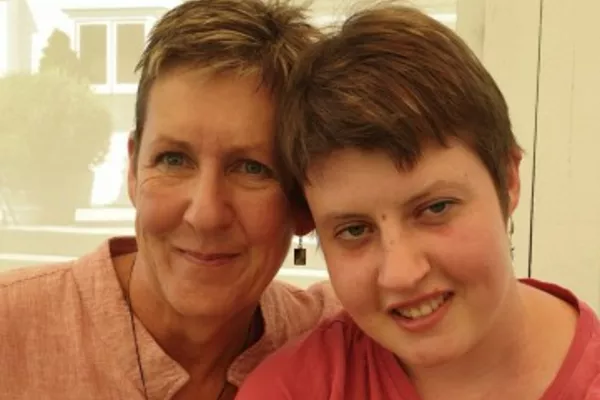Lizzie's story
22 Mar 2020
My daughter Lizzie was born in 2003 in Rotorua. She was a full-term baby delivered by emergency c-section. Initially she seemed well. She was a good weight with good Apgar scores, she latched well and seemed peaceful. By day two, however, Lizzie began to fret and struggle. She would not feed and could not settle. She was admitted to SCBU and given oxygen but her condition worsened. Later that day she was seen by the Paediatrician on duty who had just returned from an Echocardiogram training course. This is a pivotal piece of information because if he hadn't been on duty and hadn't just been on that training course, Lizzie would have died within a couple of days.
None
22q Deletion Syndrome is a complex condition comprising more than 180 potential anomalies. It affects the body, the blood, the brain, the mind, the emotions. This requires families like ours to access- then juggle - a wide range of medical, social and educational resources to assist our children. Often, we’re trying to do so at a time when we’re feeling overwhelmed and exhausted. Access to good services often requires making private appointments or travelling long distances for care. As you can imagine, in addition to being emotionally under resourced, families often don’t have the financial wherewithal for this.
By the time Lizzie was at school, we felt on much more solid ground physically - but mental and emotional health issues were starting to emerge. At this time, she was keeping up with peers academically at school.
But at the age of eight, the extreme anxiety that Lizzie had always suffered bloomed into a complete breakdown. Finally, we visited a psychiatrist privately. He prescribed psychiatric medication and DHB Mental Health Services were finally obliged to see Lizzie regularly. It has been a long journey through two different DHBs but in the last few years we have received some very sensitive mental health care. We managed to form a team of people who could discuss options, try interventions, monitor outcomes, finetune and finetune again. Sadly, due to funding -and to Lizzie’s increased emotional stability, we have been discharged from community mental health and we are, once again, alone.
Writing this has made it shockingly clear that this loneliness is exacerbated by a lack of professional information sharing along our 17-year long journey. I have encountered far too much territorialism and ego. Some of the things said to me – mostly by medical professionals, but sometimes by educators – have been not only unprofessional and unhelpful, but also cruel and damaging.
None
So,there’s has been no shape or coordination to Lizzie’s care. We handle each health, education and social ‘portfolio’ separately. We tell her story again and again and again. We attain a level of health or stability – and we are discharged. But this is a lifelong condition from which Lizzie can only be discharged by death. I have often fantasised about some overarching ‘22q Deletion Director’ who can help coordinate all the needs that Lizzie has had, has now and will have in later life: social, educational, medical, financial. Research is showing us that people with 22q deletion Syndrome are susceptible to autoimmune disorders later in life, that intellectual function may further decline and, of course, there’s the ever-present heart condition. So many balls to keep in the air and I cannot be here to juggle them forever.
Our medical ‘team’ continues to change and shift. There are a couple of things in the ‘run out of ideas’ basket, a couple of things filed under ‘watchful waiting’ and several in the regular maintenance file. We are approaching the time when Lizzie will no longer be able to be admitted to the paediatric wards in hospitals. We have already been transitioned to adult heart services (a very well-coordinated service) but I dread those acute admissions when I will not be able to stay with her. Her body may be adult, but her capacity is not.
None
Everything we have, everything we do, we’ve figured out for ourselves. Australia eventually formed a 22q Foundation and, under my impetus, New Zealand joined them. I served on the board for many years and every single thing the Foundation does is to help the newly diagnosed avoid the tribulations that we parents of older children have endured.
None


